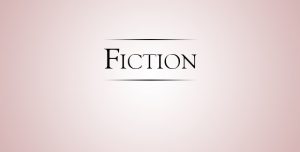An Interview with Featured Artist Neverne Covington
Cynthia Reeser (TRon): Could you talk about your development as an artist? Neverne Covington: Even as a child, I have always loved to draw and I have never stopped. CR: Much of your work has nature as its subject—notably, your paintings currently on display in your online portfolio at http://www.nevernecovington.com/index.html. What strikes me immediately about these paintings is your expert use of line and color. When choosing a subject from the natural world to paint, how do you make your selections? NC: I feel as if the objects I draw and paint select me. Sometimes I will see a subject or natural phenomena which I have passed many times and I look further and it feels like I am seeing it for the first time. The diversity of our natural world and the ability of nature to transform itself capture my imagination. I am fascinated with humankind’s relationship to matter…the being of nature. At the center of my life is a love and respect for the natural world, and creating art is a way to honor and share that appreciation. CR: Do line, form, and color figure into your selection process? NC: Both consciously and unconsciously, they figure into my work, along with other formal elements of art: shape, mass, texture, rhythm, repetition... CR: Once you choose a subject for a new piece, how do you select which medium or media to use? And is your choice of medium directly informed by the subject, or by some other method? NC: Composition and draftmanship are my primary concerns when starting a painting. In so many ways I do not think of drawing and painting as inherently different. Also, scale plays a big factor in choosing my medium. Is this work a small and intimate piece, or does it need to be large to be appropriate to the formal concerns of the work? How does this work evolve? CR: You are also a book illustrator. Could you talk about your experience working with publishers as an artist? NC: I have had a great experience working with publishers. I have illustrated mostly for publishers who have highly skilled art directors who know what they want. That is the person I usually work with, who knows how to use my skills and imagination, whether it is just a book cover or an entire book. Although I work alone most of the time, I enjoy the collaborative process of working with an art director and an editor. Sometimes I am given free reign to design and paint the way I interpret the narrative and sometimes the composition and layout have already been prescribed. Also, it has provided me a way to continually practice my craft. CR: Do you have any advice for illustrators who want to break into book illustrating? NC: Work for a royalty fee if possible. I still get royalty payments twice a year for a book I finished over ten years ago. You have income ongoing for work done a long time ago. CR: What is most important to you as an artist? NC: It is most important for me to continue to create work that is fresh, alive, and invigorating; to constantly challenge myself; to venture into the unknown; and to commit to the work. CR: What legacy do you want to leave behind for future generations of artists and art appreciators? NC: Personally, I hope to leave work behind that will inspire, challenge, enrich, and nourish those who view the work. I hope that it will have made a difference. I am not sure legacy is the right word, but I hope the value of art continues to be both revered and incorporated into everyday life and enriches the human experience. One of my students, just today, said she thought that surely, my legacy includes the places I have taught for more than 18 years: Eckerd College, Ringling College of Art and Design, the International Academy of Art & Technology, and currently, the Morean Art Center in St. Petersburg, FL. I guess I never thought of that as a legacy, but I hope I have touched the lives of those who have been a part of my teaching work.
~
Upcoming Exhibitions... See Neverne Covington’s work in the following venues:
The Book as Art: 21st Century Meets Tradition When: July 19-Sept. 20, 2013 Where: Gallery at the Art Institute of Atlanta-Decatur, One West Court Square, Suite 110, Decatur, GA, 30030 The Decatur Arts Alliance and the gallery of The Art Institute of Atlanta-Decatur introduce this new visual component of artists’ books to the largest independent book festival in the country. See forty-seven juried works from artists from twenty states, Canada, and Israel. Presented by the Decatur Arts Alliance and the Art Institute of Atlanta-Decatur. An event of the 2013 AJC Decatur Book Festival.
~
Florida Museum for Women Artists, 4th Annual Juried Show When: July 20, 2013 – September 28, 2013 Regular Exhibit Hours: 5:30–8:00 p.m. (Free for Members / $10 Non-Members) Where: 100 N. Woodland Blvd., Suite 1, DeLand, FL 32720 Phone: (386) 873-2976 Artist Talk Saturday, September 28 3:00– 5:00 p.m. Free for Members / $5 Non-Members For more information, visit floridamuseumforwomenartists.org
~
Strobel Design Build
Where: 2716 6th Ave. South, St. Petersburg, FL 33712
When: 2nd Sat. of the month, beginning Oct. 2013
~
Contact Neverne Covington at: neverne@mac.com Visit her website at: www.nevernecovington.com




